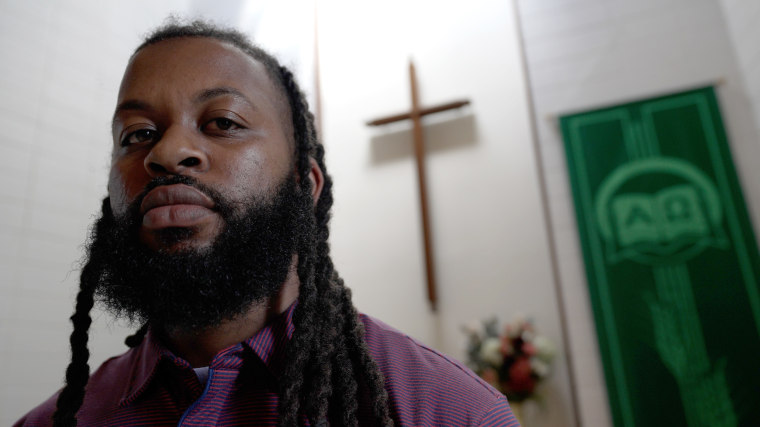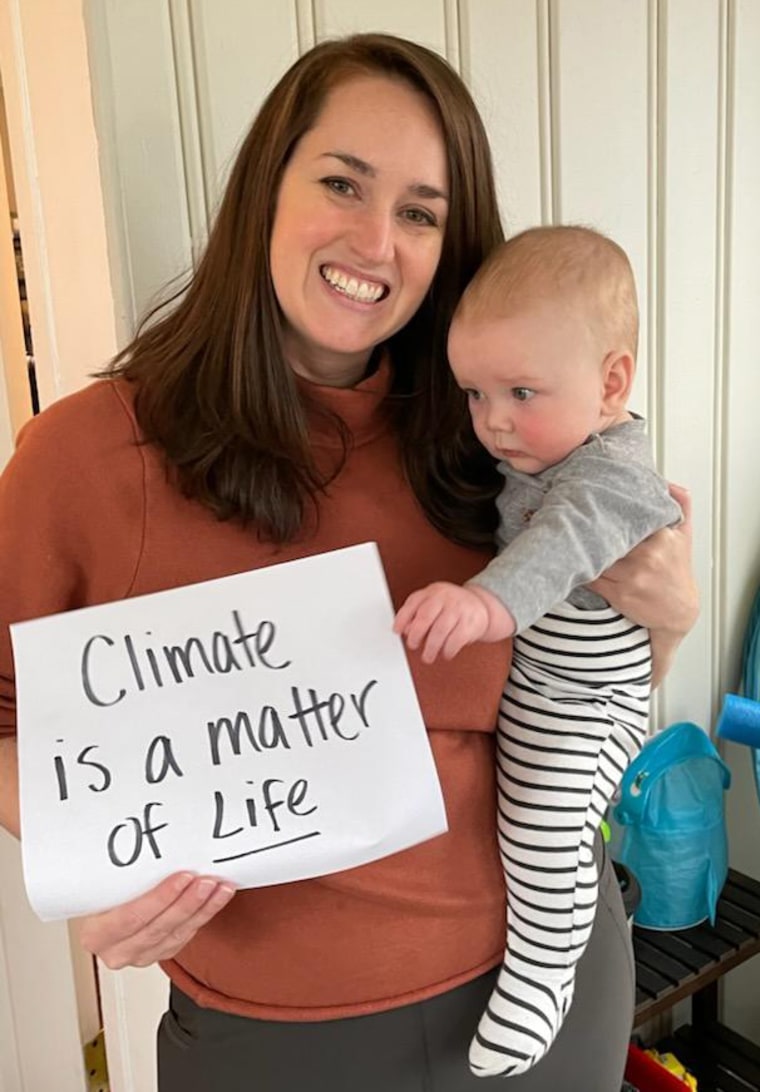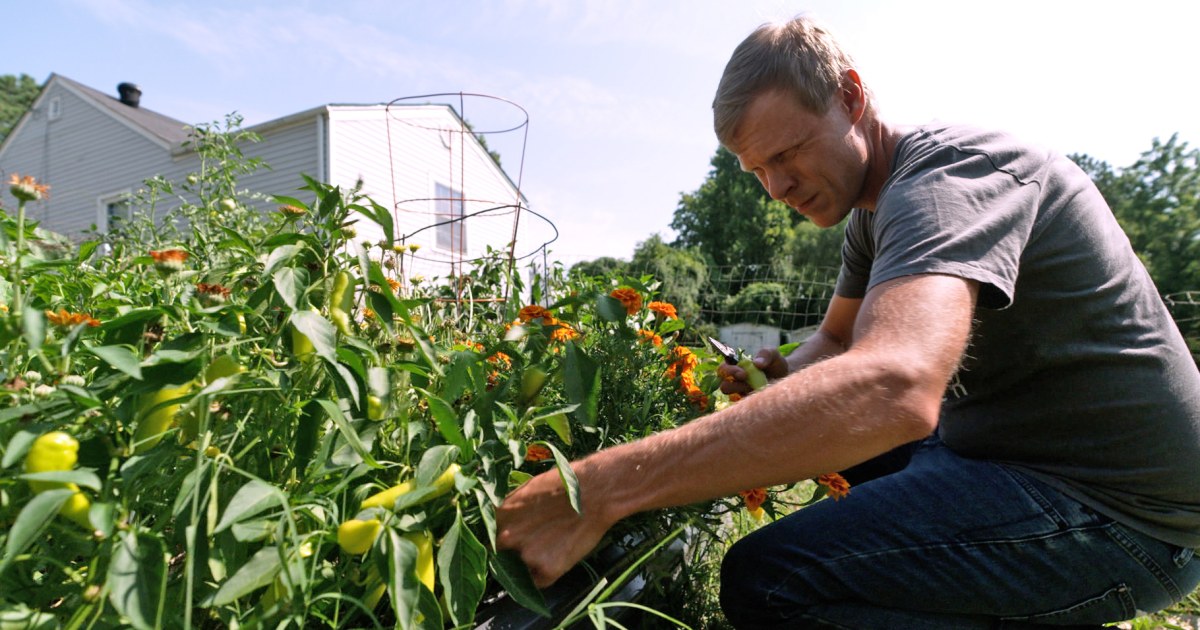The Summary
- A group of young evangelical Christians plans to campaign at religious colleges to persuade students to consider climate change at the ballot box.
- It’s part of a small movement within the evangelical community to link Christian values with climate action.
- The efforts come as Donald Trump continues to court evangelical voters while calling climate change a “scam.”
When groups of evangelical students canvass for climate votes at their Christian colleges later this month, they’ll have a tagline: “Love God, Love Your Neighbor, Vote for Climate!”
It’s the first such in-person campaigning on campuses that the nonpartisan group Young Evangelicals for Climate Action has organized since it launched in 2012.
The volunteers — members of chapters at six Christian universities — aim to draw connections between communities affected by the climate crisis and the Christian duty to “love thy neighbor” and help those in need.
The initiative is part of a larger movement driven by the Evangelical Environmental Network, an organization that lobbies for faith-based climate action.
Its members are a minority in their community: A 2022 poll from the Pew Research Center found that evangelical Christians were the most likely among U.S. religious groups to express views skeptical of human-caused climate change.
In the 2020 election, 84% of white evangelical Christians voted for Donald Trump — who in the past has called climate change a “hoax,” contradicting decades of scientific consensus. As recently as last week, Trump incorrectly claimed that “the planet’s actually gotten a little bit cooler recently,” and he called climate change “one of the greatest scams of all time” at a rally Sept. 29.
White evangelical voters cast a third of the winning votes for Trump in 2016, and a Pew Research poll released last month found that 82% said they would do so again this year.
Still, Jessica Moerman, CEO of the Evangelical Environmental Network, is committed to getting Christians to see climate change as a matter of loving the Earth that God made, as she describes it.
“As evangelicals, we have this biblical mandate to care for God’s creation,” said Moerman, who is also a pastor and a climate scientist. “And in the 21st century, that means taking action on climate.”
Moerman said she has seen an uptick in interest in climate issues from evangelicals who have experienced extreme weather. So her group is starting to focus more on making connections between climate change and increasingly powerful storms and wildfires, she said.
Young Evangelicals for Climate Action is a ministry of the Evangelical Environmental Network, and its work extends beyond college campuses. Adam Hubert, a middle school science teacher at a faith-based school called Hope Academy GSO in Greensboro, North Carolina, is a member. He incorporates climate science into his middle-school lessons on biology and environmental science.
This spring, the class took a trip to the Blue Ridge Mountains to learn about how climate change can impact forests and wildlife.
Hubert said many of his students tell him that school is the only place they talk about climate change.
“I hope that my students leave my classroom having some sort of reverence for the natural world,” he said. “So when they’re 18 and they’re going to the ballot box or talking to their neighbors, they might think about that.”

Most of Hope Academy’s 130 students come from low-income families of color. Hubert said the climate-denial rhetoric from some prominent evangelicals doesn’t represent the attitudes of the school’s community.
“I believe that white evangelicals have this ability to deny or pretend that something is not existing,” he said. “I think we see that with racial injustice. I think we saw that in the pandemic. And we definitely see it with the climate crisis.”
Moerman views climate denialism among evangelical Christians as a product of misinformation.
“Unfortunately, it has been my own evangelical community that’s been one of the primary targets of that misinformation,” she said.
Some conservative evangelical politicians have for years fueled a skepticism of climate change. Jim Inhofe, the late Republican senator from Oklahoma, presented a snowball to the Senate floor a decade ago as evidence that “only God can change the climate.” And last year, former Arkansas Gov. Mike Huckabee released a Christian children’s book refuting human-caused global warming.
To combat such ideas, the Evangelical Environmental Network hosts webinars on the science of climate change and how faith connects to climate action. Volunteers run faith-based nature camps for children and facilitate listening sessions in Christian communities affected by the climate crisis.
The group’s cornerstone Pro-Life Clean Energy Campaign frames the push to tackle air pollution as a way to protect unborn children, given research that shows pollution can raise the risk of preterm birth and low birth weight. A petition associated with the campaign has garnered more than 2 million signatures.
The network also connects with pastors and preachers, providing guidance on incorporating climate discussion into sermons.
Caleb Haynes, a pastor at a small church called Kaleo Nashville in Nashville, Tennessee, is among the network’s members. He believes it’s the Christian duty to consider climate while voting — and preaches accordingly.
“It’s 2024, and Christians aren’t the only ones talking about apocalyptic times,” he told his congregation at a Sunday morning service in July. “As glaciers melt and sea levels rise, and greed wants to run the show, the people of God must show up!”
Haynes doesn’t endorse particular candidates, focusing instead on the links between Christian teachings and caring for the planet.
“Some pastors get kind of hung up talking about climate change, but to me, it’s biblical faithfulness 101,” he said in an interview. “Our original sin here was assuming that we consume, any way we want, whatever we want, from whatever tree in the garden we want, and that there wouldn’t be consequences.”
“We’re talking about the future of life on Earth and the lives of millions of people,” he added.

Both Haynes and Moerman said they see climate change as a matter of caring for children.
“As evangelicals, we are called to defend the life of every single child,” Moerman said. “And to truly do that, we have to take climate into account — because it is our children, both born and unborn, who are most impacted by climate harms.”
Trump has courted the evangelical vote in his campaign by speaking at Christian conferences, with some success: Trump voters were spotted at a March campaign rally in Ohio wearing gear emblazoned with the slogan “Jesus is My Savior, Trump is My President.” At a rally Trump held in Montana in August, several evangelical attendees said they saw the failure of the assassination attempt on him as “divine intervention.”
Despite that, Moerman said, she still sees evangelicals as an important, untapped voter base in the fight to address climate change.
“We’ve activated only a small sliver of the public,” she said. “To solve a problem as big as climate, we need everyone.”






